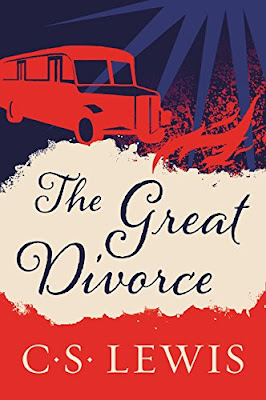Book in Review: The Problem of Pain
 There is much good in Lewis's attempt to reconcile a benevolent God's existence with the reality of a painful world that we see everyday. In Problem of Pain he assaults any pretext for mankind understanding himself to be "basically good" with precise brutality. With a prophetic voice he speaks to a post-modern world where no one else understands themselves to be "depraved" and suggests how to recapture that foundational presupposition to Christianity. In my favorite chapter entitled "Human Wickedness" Lewis shows how the elevation of the virtue "kindness" over and above all other virtues, and the eradication of any sense of shame--have helped make modern man see himself as unworthy of hell and therefore no longer needy of a saving.
There is much good in Lewis's attempt to reconcile a benevolent God's existence with the reality of a painful world that we see everyday. In Problem of Pain he assaults any pretext for mankind understanding himself to be "basically good" with precise brutality. With a prophetic voice he speaks to a post-modern world where no one else understands themselves to be "depraved" and suggests how to recapture that foundational presupposition to Christianity. In my favorite chapter entitled "Human Wickedness" Lewis shows how the elevation of the virtue "kindness" over and above all other virtues, and the eradication of any sense of shame--have helped make modern man see himself as unworthy of hell and therefore no longer needy of a saving.Lewis also shows how evil and pain often lead to good ends, ends we would not arrive at were it not for the struggle and hardship experienced. He writes, "Pain as God's megaphone is a terrible instrument...But it gives the only opportunity a bad man can have for amendment. It removes the veil." Lewis further shows in the chapters on "Human Pain" how hardships have a way of waking us up to the reality of eternity.
But in other parts he strays. Lewis makes a case (hypothetical perhaps but a case) for theistic evolution in "The Fall of Man" chapter where pre-human species existed in a natural way for generations and generations until they were stamped with the image of God and made fully "man". After this divine act, they were now bound to God and to morality. Such thinking is popular in modern Christianity (trying to reconcile creation with "science") but it makes for a very confusing understanding of New Testament interpretation (and particularly Romans 5).
C. S. Lewis also lies heavily on the free-will side of the fence. And though he claims to not be discussing the Pelagian-Augustinian controversy, he really is. Lewis says throughout that God has gifted man with the ability to choose. Calvin and Augustine would argue in unison "how can a stone turn itself into flesh?" How can a dead man make himself alive apart from the grace of God? Lewis argues that though man's nature is fallen and thoroughly predisposed to self, his will is not marred to the extent that he can no longer choose the things of God.
In fact, Lewis's whole understanding of evil in the world hinges on God's gift of free will. God did not want to create man with computer-like, pre programmed affections. He wanted to love man and allow man to choose to love Him in return. This choice by definition allowed for the possibility of evil to enter the world, which God had for-known would occur in eternity past. Even Lewis's understanding of hell hangs on the fact that God respects our wills and will not force anyone to go to heaven against that will. For Lewis, in the end everyone gets what they want.
All in all, The Problem of Pain is good, but not without its own problems. (Personally I prefer his "Mere Christianity" and his fictional tales such as "The Great Divorce" and "'Till we have Faces"). Lewis is an incredible thinker with great powers of logic, but at times he may rely more on his logical inferences than Scriptural foundations. Sometimes as Christians we need to be content with certain tensions involving various divine mysteries that are quite simply beyond our limited capacity. There is no mistake, however, that Lewis forces the reader to think and to not shy away from some of the most difficult questions every worldview, not just Christianity, must answer. The Problem of Pain is an admirable attempt to do just that.



Comments
Post a Comment